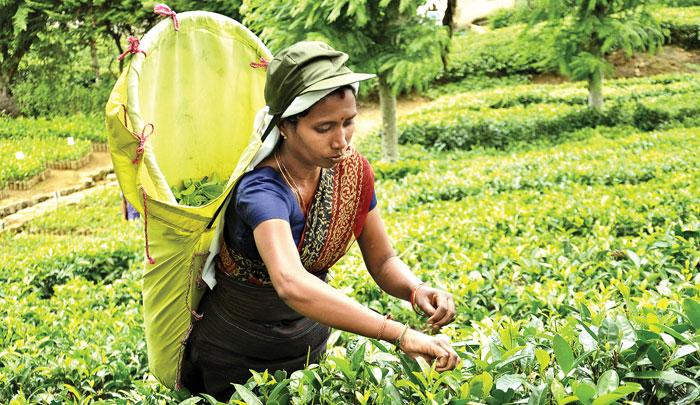
Despite the stalemate between trade unions and plantation companies over the wage increase coming to an end last week, dissatisfaction lingers on as both parties failed to reach their full expectations.
Ceylon Workers Congress (CWC) President Muthu Sivalingam said, “The CWC consented to the new wage increase formula reluctantly even though it was much lower than our original demand.
We agreed to it as the plantation industry was going through a bad phase.” He said the collective agreements between trade unions and plantation companies went on smoothly since 1992.
However, talks on the last agreement had been dragging on for nearly one and half years. The plantation companies turned down the demand for a daily wage of Rs. 1,000 citing the drop in world tea and rubber prices as the reasons.
“The companies also should realize the soaring cost of living is unbearable for the workers,” Sivalingam said. Trade union sources said they signed the agreement under protest demanding that arrears of wages be paid when the industry recovers. When asked how the Planters’ Association of Ceylon, the umbrella organization for Regional Plantation Companies (RPCs) signed the agreement despite the bad situation in the industry, its Chairman Sunil Poholiadde said (RPCs) signed the agreement with expectation that certain concessions such as the fertilizer subsidy and use of weedicides withdrawn at the last Budget be restored “The increase of the daily wage of workers to Rs. 730 is the best we could offer given the circumstances in which the plantation industry is placed in. However, we will not compromise our stance on the need for productivity based wage increase model that is sustainable and will create a win-win scenario for all,” Poholiadde said.
The Planters’ Association had been saying that if the daily wage is increased to Rs. 730 the companies will incur a production cost of Rs. 600 and that RPCs will not be able to sustain operations and would have to hand over the plantations back to the State.
Poholiadde said the RPCs agreed on the wage increase with good will expecting the prices to increase soon.
Global tea and rubber prices have come crashing due to the adverse market scenario in tea and rubber importing countries.
The daily wage of a worker was raised to Rs. 730 from Rs. 625 at a meeting among stakeholders of the plantation industry last week. However, there was no agreement on salary arrears.
“Our production cost per kilogram of tea is around Rs. 550 while the return is around Rs. 429 at the auctions. Companies pay Rs. 805 which includes EPF and ETF for a worker a day. We have also increased the over kilogram rate from Rs. 20 to Rs.25 on green leaf and from Rs. 30 to Rs. 35 per kilogram of rubber expecting an improvement in productivity,” Planters’ Association sources said.
He said we expect the trade unions to cooperate with us to improve productivity and revive the industry.
The new wage structure comprises a basic wage of Rs. 500, an attendance incentive of Rs. 50, a price share supplement of Rs. 30 and a productivity incentive of Rs. 140. Besides Rs. 25 is paid per kilogram above the norm which depends on climatic conditions. “Workers could pluck around 25-30 kilo of leaves a day but they pluck only around 14-16 kilos,” Planters’ Association sources said.
Director, Lanka Commodity Brokers Limited, Jehan Algama said, it is a good offer for workers given the current situation of the plantation industry and added that workers should get back to work as fast as possible giving out their best to enhance productivity.
“Workers are looked after well in estates with education and health care facilities. The estate infrastructure has improved a lot with facilities to lead decent life,” Algama said.
The plantation industry was privatized in 1992 taking into account the performance of the State Corporations before 1992. Twenty RPCs have made a profit of Rs. 26 billion, paid Rs. 7 billion as dividends to shareholders and invested Rs.55 billion on RPC estates since privatization.
